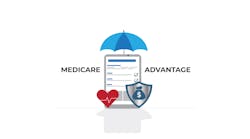As a recent Health Affairs article noted, states such as New York and California are increasingly leveraging their ability to improve coordination and integration across Medicare and Medicaid through Medicare Advantage Dual Eligible Special Needs Plans (D-SNPs). In a recent interview, executives from insurer MVP Health Care and Belong Health, a startup with a focus on D-SNPs, spoke about their joint venture in New York, which launched in 2022.
Special Needs Plans (SNPs) are a type of Medicare Advantage plan focusing on intensive care coordination and designed for individuals with special needs. D-SNP health plans offer the potential to break down silos of care by empowering care managers to be in regular contact with the members and their healthcare providers, allowing for a more coordinated approach to addressing a member’s physical, behavioral, and social health needs.
Philadelphia-based Belong Health was launched by people with expertise in Medicare Advantage and SNP products. MVP said working with Belong will offer New Yorkers the depth of knowledge and experience necessary to support underserved members with complicated healthcare needs, such as multiple chronic conditions.
Patrick Foley, co-founder and CEO of Belong Health, said the company was launched about a year and a half ago. “The goal for the company was to partner with health plans like MVP to launch dual special needs products that would be focused on beneficiaries who are eligible for both Medicare and Medicaid. These beneficiaries probably have a fair amount of complex illness as well as vulnerable situations in terms of access to social services and things that contribute to them not being able to really maximize their healthcare,” he explained. “We feel very fortunate because the two organizations very quickly realized that we were aligned culturally and from a mission perspective, and we're able to help MVP launch the dual special needs product in New York for 2022.”
Dominick Bizzarro, chief growth officer of MVP Health Care, said the company has been in Medicare Advantage for quite some time and as a regional health plan; it also has been in Medicaid managed care for a while. “For us, looking at the dual special needs population, there was a real opportunity that I don't think we had the right products for,” he said. “As you look at moving into that market, you recognize the need for whole person care, and thinking about care in the context of people's lives and what challenges they face beyond the diagnosis, which usually is pretty straightforward. A care plan has to be delivered in the context of what that person is capable of. For us, as a very customer-centric organization, we were looking for a partner that shared values with us and zoomed in on the customer and what their unmet needs were.”
I asked Foley why it makes sense to get into this space now. Have there been regulatory changes that make it more attractive as a business opportunity?
“What we realized was that the broader industry across the country has just not kept up in terms of offering dual special needs plans,” he replied. “There has, of course, been a proliferation of Medicare Advantage plans. That's been great. But there wasn't as much on the dual special needs side. It is not only whole person, but if you really need to serve the whole community, you have to have a dual special needs product. In launching Belong Health, it wasn't so much about changes at CMS recently, but just more an acknowledgement that this program has been underutilized.”
New York and California are the leaders in this area from a regulatory perspective in pushing the health plans in those states to fully integrate Medicare and Medicaid, Foley added, “but we think that over the next five years many more states are going to do that. It is happening across the country and some states are just moving faster than others.”
A press release from the two organizations mentioned that Belong has some proprietary technology to optimize the management and delivery of care. I asked if Foley could elaborate on that.
“Well, another alignment between Belong and MVP is that both of us have a strong belief that you look at customer relationship management or CRM, and patient engagement as a holistic approach,” Foley said. “It's not just something a customer service agent does; it's also something that a care manager does. Anybody who has an interaction with the beneficiary should be maximizing that. MVP and Belong are jointly developing on top of a CRM-based platform. For those of us who've been in a healthcare business for a while, it's kind of painful because traditionally healthcare companies use this very old technology. I mean, it's probably 1970s technology, so we are trying to embrace the more current CRM-based technology and building not only customer service workflows within a technology platform, but also then care management workflows, and even workflows that address looping in the physician community as well.”
Belong, which is in talks to partner with other health plans and health systems, says it takes full upside and downside risk with local health plans. “We think that's a really important part of what makes this a partnership is that when Dominick, myself and the other executive leaders at MVP started the dialog around the partnership, it always was based on a full like 50/50 sharing of whatever would be the investments upfront and then downstream what happens down the road,” Foley said. “We launched a joint venture company in New York State, and that company is dedicated to supporting the dual special needs line of business that was launched.”
Bizzarro told an anecdotal story as an example of how the program works. He described a gentleman called Mr. P., who joined the D-SNP plan. He gets an outreach call to check in and to understand any concerns that he may have. The care manager learns that he stopped taking his medication, because it was difficult for him to get to the pharmacy to pick them up. He's got multiple chronic conditions, but he doesn't have a lot of supports around him so he's missing his medication. “Within two days of the call, his medications are delivered to him. Now he is taking his medications and he knows he has a team that he can reach out to that is really getting a familiarity with him and what the challenges are.” Bizzarro said. “His diagnosis had been identified, but his care needs to be managed and coordinated.”
Although it is too early to talk about outcome data yet, Bizzarro said, “I can tell you that our team, especially the clinical people on our team, really feel that these care management and engagement outreach activities are working, and when you look at it on the cost side, it's all trending in the right direction. We're collecting some really strong stories about where that is working, and those are the leading indicators that the outcomes are coming, because you get a general sense of whether things are moving in the right direction or not.”
Foley noted that the pandemic has created some early challenges with the launch of the new program. “We're on track to get to where we want to get to. I think some of the early numbers have been affected by the pandemic,” he said. The federal health emergency allows members just to stay where they are; they don't have to move out of their Medicaid plan, so there are many Medicaid members who are 66, 67, or 68 years old. They would normally be transitioning to Medicare, he said, "but right now they're not, so that's a piece of it. I think once we get past some of these abnormal near-term issues, things will get back to where we expected them to be.”


